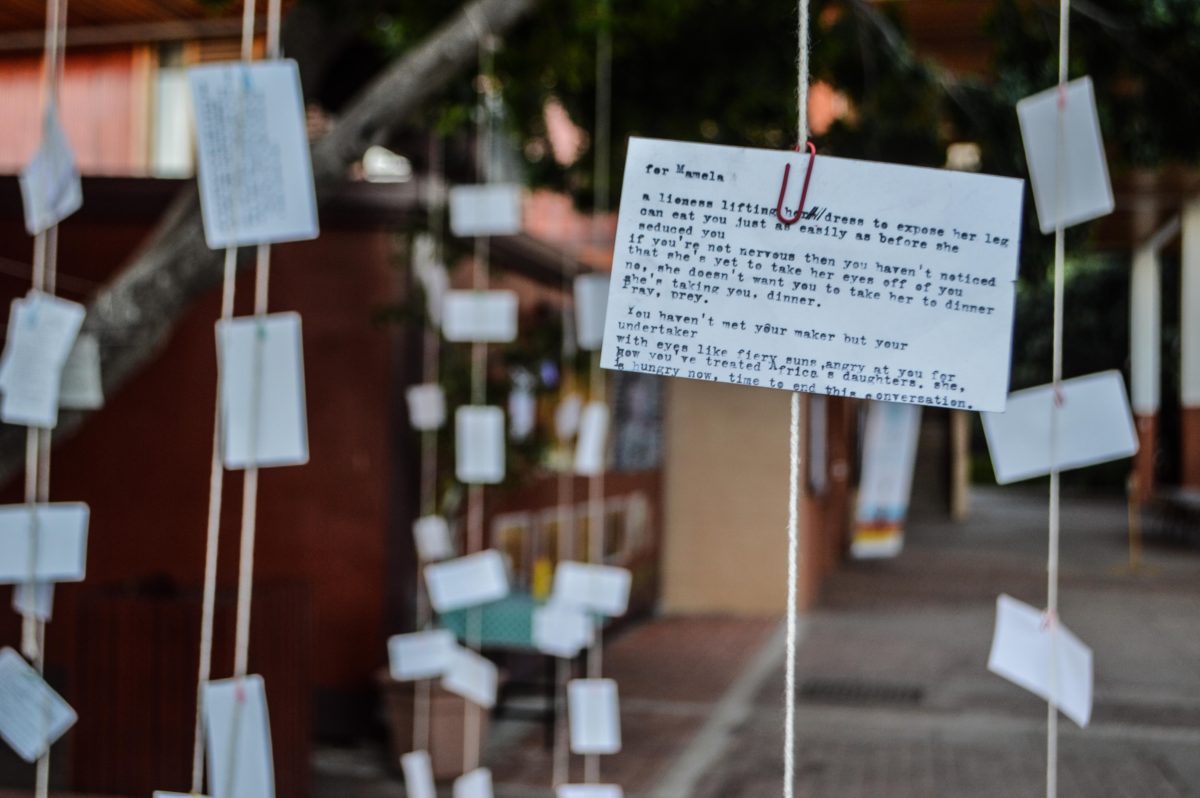
In 2013 the independent academic publishing company RODOPI published two volumes presented by Drama for Life that include the following research:
Introduction by Hazel Barnes
Delineating the field
Ch1: Negotiating the space, framing for understanding and performing for change: Opportunities and challenges for Applied theatre praxis in Hiv/Aids contextsby Patrick Mangeni
Ch 2: HIV Communication: Global Emergencies, Media Templates and African Communities (A Personal Journey) by David Kerr
Ch 3: Applied Art is still art, and by any other name would smell as sweet by Lynn Dalrymple
Ch 4: Postcards on the aesthetics of hope (in theatre) by Veronica Baxter
Innovations in HIV/Aids Awareness Education
Ch 4: The Lover and Another: a consideration of the efficacy of utilising a Performance Poetry Competition as vehicle for HIV/Aids education amongst young adults by Diana Wilson and Karen Suter
Ch 5: Do, Be, Do: Insights from “Rapid Cognition” in a theatre-making process by Selloane Mokuku
Ch 6: Space and Involvement – Theatre in (a) South African Prison by Johannes Visser
Innovations in Research Approaches
Ch 7: Appreciative inquiry – An Alternative Approach to Applied Theatre by Emelda Ngufor Samba
Ch 8: After the Curtain – reframed: Using Action Research to reflect, monitor and evaluate the Applied Theatre experience by Gordon Bilbrough
Ch 9: Researching the Theatricality and Aesthetics of Applied Theatre by Emma Durden
Ch 10: Collaboration as Research: Yale University, Siwela Sonke Dance Theatre, Clowns Without Borders South Africa, and People’s Educational Theatre Swaziland by Rebecca Ann Rugg
Ch 11: Participatory Theatre for Development as Action Research: Methodological, Theoretical and Ethical Challenges, Tensions and Possibilities with specific reference to an HIV/Aids and Disability Project (2007 - 2010) by Nehemiah Chivandikwa
Innovations in Research Practice/Theory
Ch 7: Appreciative inquiry – An Alternative Approach to Applied Theatre by Emelda Ngufor Samba
Ch 8: After the Curtain – reframed: Using Action Research to reflect, monitor and evaluate the Applied Theatre experience by Gordon Bilbrough
Ch 9: Researching the Theatricality and Aesthetics of Applied Theatre by Emma Durden
Ch 10: Collaboration as Research: Yale University, Siwela Sonke Dance Theatre, Clowns Without Borders South Africa, and People’s Educational Theatre Swaziland by Rebecca Ann Rugg
Ch 11: Participatory Theatre for Development as Action Research: Methodological, Theoretical and Ethical Challenges, Tensions and Possibilities with specific reference to an HIV/Aids and Disability Project (2007 - 2010) by Nehemiah Chivandikwa
Innovations in Research Practice/Theory
Ch 12: Dramatic Spaces in Patriarchal contexts: Constructions and disruptions of gender in theatre interventions about HIV by Alexandra Sutherland
Ch 13: This is My Story: A Model for Creating Performance Engaging Artists and People Living with HIV/AIDS by Galia Boneh
Ch 14: A poetics of contradictions? HIV/Aids interventions at the crossroads of localisation and globalisation by Kennedy Chinyowa
Ch 15: Project Njabulo: Using Storytelling, Drama, and Play Therapy for Psychosocial Interventions in Communities affected by HIV/Aids in Southern Africa – Pathways to Empathetic Locally Sustainable Care by Jamie Lachman
Innovative Case Studies
Ch 16: Dramatic Beading by Myer Taub
Ch 17: Evaluation of applied drama and theatre in HIV/Aids Interventions: A case study of Themba Interactive by Remo Chipatiso

